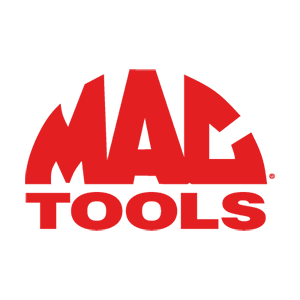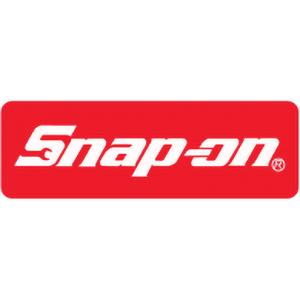MAC Tools Franchise in 2025: Costs, Fee & FDD
Considering a Mac Tools franchise? Learn about its unique mobile distribution model, robust support system, and potential earnings, along with the investment costs, fees, and franchise details to help you make an informed decision.

Table of Contents:
Mac Tools® is a prominent name in the automotive and tools industry, founded in 1938 as the Mechanics Tool and Forge Company by seven men with a shared vision of manufacturing top-tier tools. The company’s early success was fueled by a government contract in 1942, followed by the expansion into socket production through the creation of Clinton Tool Company in 1944. This expansion laid the foundation for what would later become Mac Tools in 1963. Known for its high-quality tools and service, Mac Tools has maintained its legacy by offering exceptional products and customer support, all while being a subsidiary of Stanley Black & Decker, a name synonymous with quality and innovation.
Mac Tools specializes in providing professional-grade automotive tools, including hand tools, power tools, toolboxes, and specialized shop equipment. The brand is deeply embedded in the world of auto technicians, serving a core customer base of automotive professionals, from independent mechanics to technicians in large service centers. Mac Tools is particularly notable for its exclusive, innovative products available only through its mobile network of distributors. This direct sales model ensures that technicians have access to high-quality tools and the support they need in their daily work. The brand is also associated with trusted names like Dewalt®, Stanley Vidmar®, and Proto®.
With over 42,000 products, Mac Tools has scaled its reach globally, operating in the U.S., Canada, Europe, and Japan. The brand operates on a mobile distribution model, with franchisees and distributors bringing products directly to customers. Mac Tools is recognized not only for its exceptional product range but also for its strong franchise network, supporting its business with a solid infrastructure of training, ongoing support, and product innovation. Today, the company’s reputation as an industry leader is bolstered by the backing of Stanley Black & Decker, making it one of the most respected brands in the automotive tools market.
For franchisees, Mac Tools provides a comprehensive support system that includes an initial training program, ongoing business coaching, and access to exclusive products. This support helps franchisees operate successfully in a competitive market. The franchise system also emphasizes the importance of building strong relationships with customers, ensuring that both franchisees and their customers benefit from the high-quality service and products that Mac Tools is known for.
Mac Tools Franchise Insights
- Mac Tools operates in the U.S., Canada, Europe, and Japan, with a franchise network spanning thousands of locations worldwide, offering an opportunity for international growth alongside its strong U.S. presence.
- As a franchisee, you’ll have access to Mac Tools’ exclusive, first-to-market products, including hand tools, power tools, and diagnostic equipment that can only be sold through Mac Tools mobile distribution, providing a unique competitive edge.
- Being part of Stanley Black & Decker, Mac Tools has the financial backing and brand power of a global leader in tools, offering credibility and strong brand recognition to franchisees.
- Mac Tools offers over 42,000 items across various categories, providing franchisees with a diverse inventory that can meet the needs of nearly every automotive professional.
- The mobile tool truck model allows franchisees to build strong, personal relationships with customers, offering a direct sales approach that differentiates Mac Tools from traditional retail-based competitors.
- Mac Tools’ customer base includes professional technicians who depend on high-quality, durable tools for daily use, which translates into repeat business and long-term customer relationships for franchisees.
Mac Tools Franchise Key indicators
Growth YOY (%)
6%
vs industry 0%
Total U.S. Franchised Units
813
3-Year Failure Rate
24%
vs industry 10%
Sales-to-Investment ratio
2.5:1
How much does it cost to open a Mac Tools franchise?
Understanding the potential investment size and capital requirements is crucial when considering opening a Mac Tools franchise. These financial commitments, including initial franchise fees, equipment costs, and ongoing operational expenses, impact the feasibility and profitability of the venture. Thoroughly evaluating these factors ensures that potential franchisees are prepared for the financial responsibilities and can make informed decisions about their ability to sustain and grow the business, ultimately contributing to long-term success.
Min & Max Investment
Opening a Mac Tools franchise involves several key costs, which are outlined in Item 7 of the Franchise Disclosure Document (FDD). you can see a breakdown of the costs to open a Mac Tools below from the most recent Item 7 below:
| Type of Expenditure | Minimum Investment | Maximum Investment |
|---|---|---|
| Initial Franchise Fee | 8,000 | 8,000 |
| Annual Fee | 1,200 | 1,200 |
| Travel and Living Expenses (Training) | 2,025 | 4,050 |
| Starter Inventory | 70,000 | 75,000 |
| Truck Lease or Purchase | 13,800 | 180,000 |
| Truck Painting and Decal Application | 0 | 10,550 |
| Tool Displays | 545 | 2,000 |
| Payment Processing Services | 0 | 500 |
| Professional Fees | 850 | 1,800 |
| Insurance (first 6 months) | 1,700 | 4,800 |
| Uniforms | 0 | 75 |
| Computer System | 3,000 | 4,300 |
| Opening Advertising and Business Cards | 50 | 250 |
| Licenses, Permits, and Authorizations | 150 | 350 |
| Business Software Fee (Monthly/Initial License) | 900 | 900 |
| Additional Funds (3 to 6 Months) | 20,000 | 50,000 |
| Total | 121,320 | 344,275 |
Item 7 in the Franchise Disclosure Document (FDD) is the “Estimated Initial Investment” section. It outlines the total costs a franchisee can expect to incur when starting a franchise, including the initial franchise fee, equipment, inventory, real estate, and other startup expenses. This section is crucial because it provides potential franchisees with a detailed understanding of the financial commitment required, helping them assess affordability and plan their investment strategy effectively.
Required Capital
To open a Mac Tools franchise, or a similar franchise in the automotive tools industry, it’s important to consider the capital requirements, liquid assets, and net worth that are necessary for a successful launch. These figures can vary depending on the location, size, and scope of the franchise, as well as other factors like the number of mobile tool trucks and inventory.
Here’s a breakdown of the estimated financial requirements for opening a Mac Tools franchise:
- Total Investment The total investment required to open a Mac Tools franchise typically ranges from $121,000 to $344,000, which includes costs for inventory, vehicles (tool trucks), equipment, and other necessary business expenses. This amount will vary depending on the specific needs of the franchisee. Assuming that you will finance your franchise investment, you should plan to have 20% of the total investment amount in the form of equity (cash) for the investment.
- Liquid Assets While the specific liquid assets required can vary, a good estimate is that franchisees should have access to at least $50,000 to $75,000 in liquid assets. This is to ensure that you can cover ongoing operational expenses, including purchasing inventory and maintaining your mobile tool trucks.
- Net Worth The net worth requirement for Mac Tools franchisees is generally around $150,000 to $200,000, though this can vary depending on factors such as the location and the franchisee’s financial situation. This figure ensures you have the financial stability needed to run a successful business and handle unforeseen costs.
How much does a Mac Tools franchise owner make?
Calculating the salary of a Mac Tools franchise owner involves analyzing gross sales to determine total revenue, assessing operational efficiency to understand profit margins, and accounting for franchisor fees and additional expenses such as rent, utilities, and payroll. Effective management of these factors can significantly impact the profitability and financial success of a Mac Tools franchise owner. This comprehensive financial analysis helps estimate net profits, from which the owner’s salary can be derived. A clear understanding of these factors ensures accurate salary projections and financial planning for sustainable business operations.
Mac Tools Revenue & Gross Sales
Mac Tools has demonstrated strong revenue performance, with a median gross sales figure of $449,362 for its franchisees. This reflects the brand’s ability to generate significant revenue through its mobile sales model, which allows franchisees to build strong relationships with professional technicians. The brand’s consistent success is supported by its wide product range and global presence, positioning Mac Tools as a leading player in the automotive tools industry.
Which key factors impact the average revenue performance of Mac Tools franchisees?
Several factors have likely contributed to the strong performance of U.S. franchisee median gross sales for Mac Tools. First, the company’s established reputation for high-quality, durable products tailored to the needs of professional technicians has built a loyal customer base. The mobile distribution model, where franchisees operate tool trucks that visit customers directly, creates convenience and fosters long-term relationships, driving repeat business. Additionally, Mac Tools benefits from its affiliation with Stanley Black & Decker, which enhances brand recognition and provides access to a broader product line. The robust franchisee support system, including training, marketing resources, and business coaching, also plays a crucial role in helping franchisees succeed and maintain consistent sales. These elements combine to provide a solid foundation for sustained revenue growth.
Mac Tools Franchise Operational Costs
When opening a Mac Tools franchise, it’s crucial to consider the primary ongoing operational costs that will directly impact your day-to-day business operations. Here are the key ongoing operational costs to consider:
- Inventory Restocking Regularly replenishing your stock of tools and equipment to ensure you have the right products available for your customers. This is a significant ongoing cost, as your sales are directly tied to having inventory on hand.
- Vehicle Maintenance and Fuel Since the business model relies on mobile tool trucks, maintenance, fuel, insurance, and any repairs for the trucks are ongoing expenses.
- Employee Wages If you have additional staff to support operations, wages will be an essential part of your overhead costs.
- Insurance Comprehensive insurance coverage, including vehicle insurance and business liability, is necessary to protect both the mobile business and its assets.
- Tool and Equipment Replacement As tools and equipment wear down, you will need to replace them to maintain your inventory and continue meeting customer needs.
Understanding these costs will help you prepare for a successful franchise operation, ensuring you can manage ongoing expenses while maximizing profitability.
Mac Tools Franchise Fees
When opening a Mac Tools franchise, it’s important to be aware of the ongoing fees that contribute to the overall operational costs. These fees cover essential services, training, and technology that support the business, ensuring you can offer high-quality service and maintain your competitive edge in the industry. Here are the key ongoing fees to consider:
- Annual Fee Franchisees are required to pay an annual fee of $1,200. This fee helps cover the costs of maintaining the brand’s infrastructure and services, such as access to marketing tools, ongoing training, and support from the corporate team.
- Other Fees Additional fees may apply for other items provided by Mac Tools, including special equipment, promotional materials, or specific marketing campaigns that support franchisee success.
These fees, while ongoing, provide crucial support to franchisees, ensuring that you have the tools, training, and technology needed to grow your business successfully. Always ensure that you are prepared for these costs as part of your overall financial planning.
Mac Tools Franchise Earnings
The earnings of a Mac Tools franchise owner can vary depending on factors like location, sales volume, and how efficiently the business is run. On average, franchise owners in the Mac Tools system can earn a competitive income. Based on the latest data, the median gross sales for a Mac Tools franchise are approximately $449,362, with estimated earnings for owner-operators around $54,000. This reflects an operating profit margin of 12%.
These figures indicate that by actively managing the business and focusing on efficient cost control and sales strategies, franchisees can achieve solid returns. Mac Tools’ reputation for high-quality tools and excellent customer service provides a strong foundation for profitability. For those who are hands-on and committed to the day-to-day operations, there is considerable earnings potential, making it an attractive opportunity for dedicated franchisees.
How to Open a Mac Tools Franchise
Becoming a franchisee with Mac Tools involves several key steps, each designed to ensure that you are well-prepared to operate your business successfully. From the initial inquiry to the start of operations, the process is structured to provide the necessary information, training, and support to set you up for success. Here’s a general outline of the steps involved:
- Initial Inquiry You or your franchise specialist submits an initial inquiry basic information about your interest and background. You should also conduct thorough research on the franchise, including seeing all of the information available on the Vetted Biz franchise intelligence platform, including access to the most recent Franchise Disclosure Document (FDD).
- Franchise Application After learning more about the franchise, you’ll need to complete a franchise application form, providing information about your background, financial situation, and business experience. This helps Mac Tools assess your suitability as a franchisee.
- Discovery Day If your application is successful, you’ll be invited to attend a Discovery Day, where you can meet the Mac Tools team, learn about their operations, and ask any questions about the business. This is also an opportunity for Mac Tools to evaluate whether you’re a good fit for their brand.
- Franchise Agreement After Discovery Day, if you decide to move forward, you’ll review and sign a franchise agreement. This legally binding contract outlines the terms and conditions of your relationship with Mac Tools, including fees, support, and operational requirements.
- Training & Preparation Once your agreement is signed, you’ll participate in the franchise training program, which covers everything from tool sales and customer service to inventory management and marketing. You will also prepare your mobile tool truck and ensure you have everything needed to start operations.
- Launch Operations After training, you will officially begin operations as a Mac Tools franchisee. This includes stocking your truck with inventory, hitting the road to meet customers, and using the tools and systems provided by Mac Tools to run your business efficiently.
Pros & Cons
Pros
Strong Brand Reputation: Mac Tools has been a trusted name in the automotive tools industry for over 80 years, backed by Stanley Black & Decker, a global leader in tools and hardware.
Proven Business Model: The direct sales model, where franchisees operate mobile tool trucks, is a well-established and effective way to reach customers, providing a reliable source of income.
Access to Quality Products: Franchisees benefit from a product line of over 42,000 items, including exclusive tools and access to well-known brands like Dewalt® and Proto®, which can help attract and retain customers.
Cons
Intense Hands-On Management Required: Success in this franchise often requires owner-operators to be highly involved in day-to-day operations, which can be demanding, especially if you’re looking for a more passive business.
Limited Customer Base: While the mobile sales model is effective, your customer base may be somewhat limited to local automotive shops, mechanics, and other specialized customers, which could affect growth potential.
Dependence on Local Market: The franchise’s success is heavily dependent on the local automotive industry, so fluctuations in the market or economic downturns could have a direct impact on sales and revenue.



